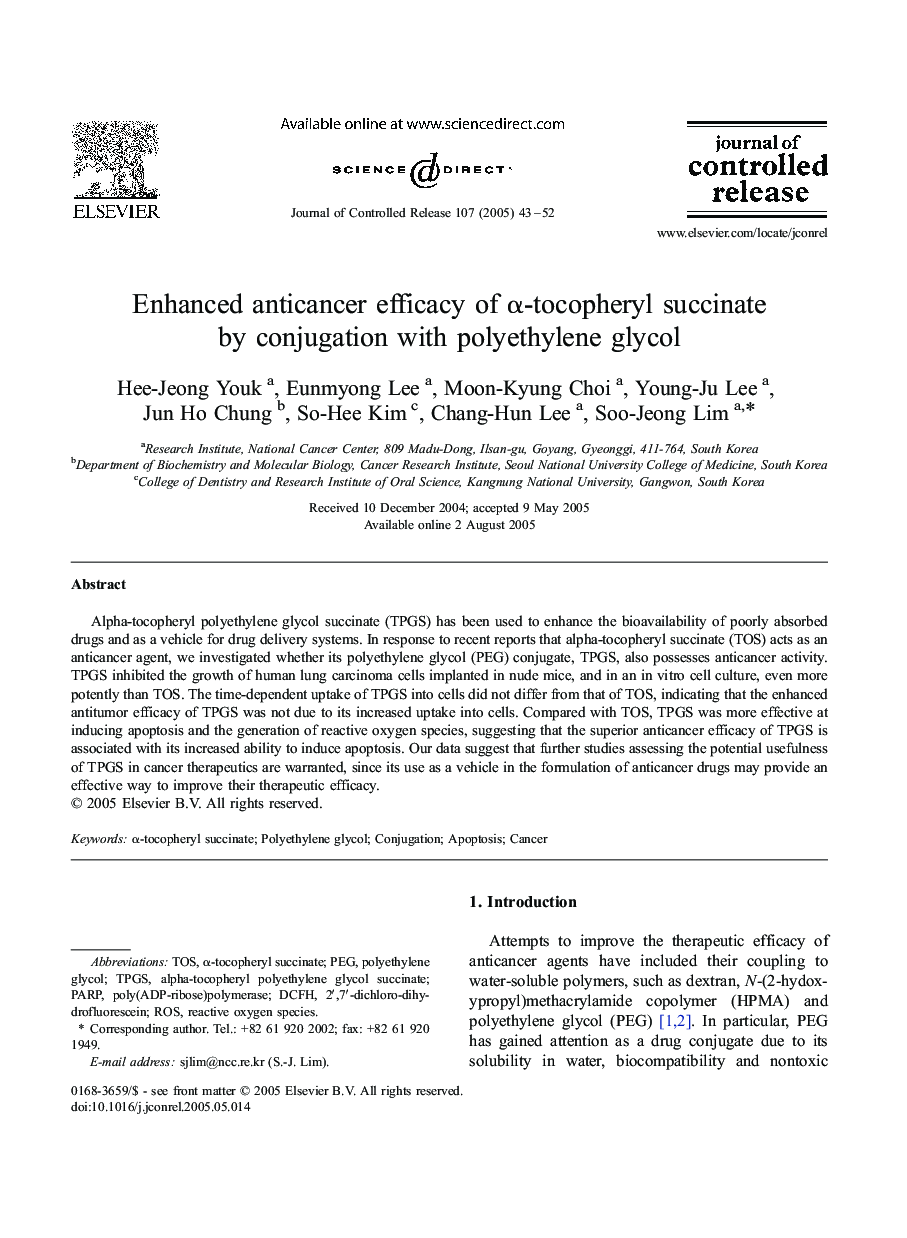| Article ID | Journal | Published Year | Pages | File Type |
|---|---|---|---|---|
| 10613389 | Journal of Controlled Release | 2005 | 10 Pages |
Abstract
Alpha-tocopheryl polyethylene glycol succinate (TPGS) has been used to enhance the bioavailability of poorly absorbed drugs and as a vehicle for drug delivery systems. In response to recent reports that alpha-tocopheryl succinate (TOS) acts as an anticancer agent, we investigated whether its polyethylene glycol (PEG) conjugate, TPGS, also possesses anticancer activity. TPGS inhibited the growth of human lung carcinoma cells implanted in nude mice, and in an in vitro cell culture, even more potently than TOS. The time-dependent uptake of TPGS into cells did not differ from that of TOS, indicating that the enhanced antitumor efficacy of TPGS was not due to its increased uptake into cells. Compared with TOS, TPGS was more effective at inducing apoptosis and the generation of reactive oxygen species, suggesting that the superior anticancer efficacy of TPGS is associated with its increased ability to induce apoptosis. Our data suggest that further studies assessing the potential usefulness of TPGS in cancer therapeutics are warranted, since its use as a vehicle in the formulation of anticancer drugs may provide an effective way to improve their therapeutic efficacy.
Keywords
Related Topics
Physical Sciences and Engineering
Materials Science
Biomaterials
Authors
Hee-Jeong Youk, Eunmyong Lee, Moon-Kyung Choi, Young-Ju Lee, Jun Ho Chung, So-Hee Kim, Chang-Hun Lee, Soo-Jeong Lim,
